Quotes & Sayings About Physical Activity And The Brain
Enjoy reading and share 11 famous quotes about Physical Activity And The Brain with everyone.
Top Physical Activity And The Brain Quotes
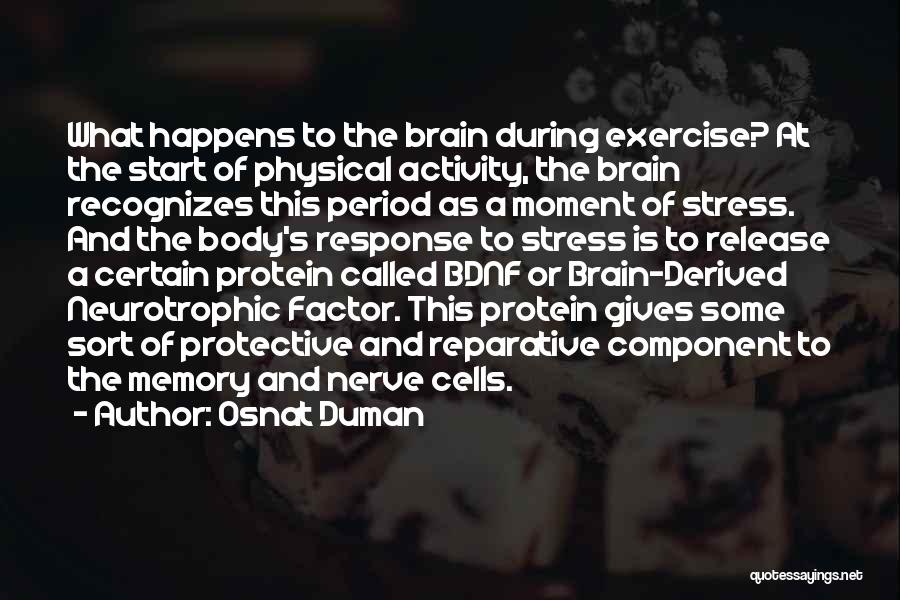
What happens to the brain during exercise? At the start of physical activity, the brain recognizes this period as a moment of stress. And the body's response to stress is to release a certain protein called BDNF or Brain-Derived Neurotrophic Factor. This protein gives some sort of protective and reparative component to the memory and nerve cells. — Osnat Duman
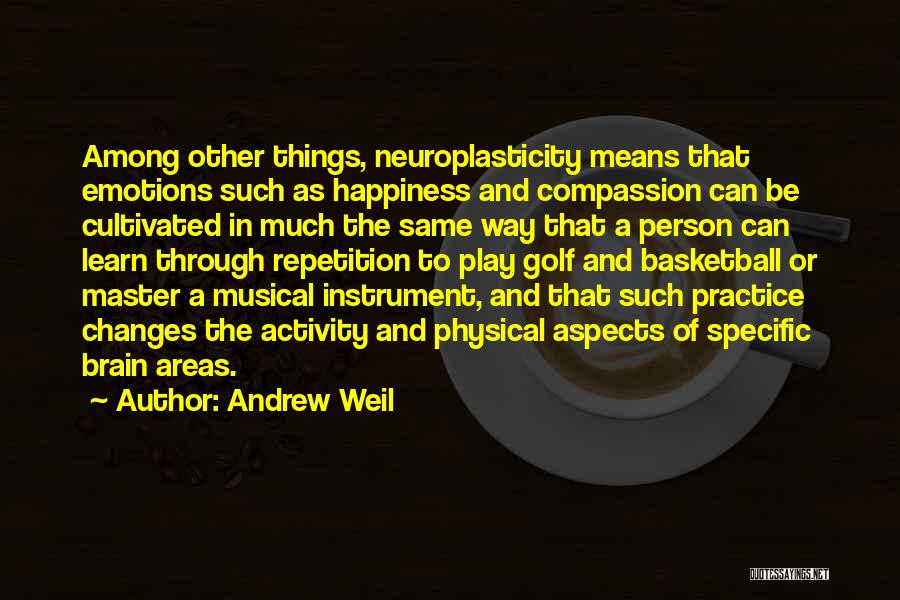
Among other things, neuroplasticity means that emotions such as happiness and compassion can be cultivated in much the same way that a person can learn through repetition to play golf and basketball or master a musical instrument, and that such practice changes the activity and physical aspects of specific brain areas. — Andrew Weil
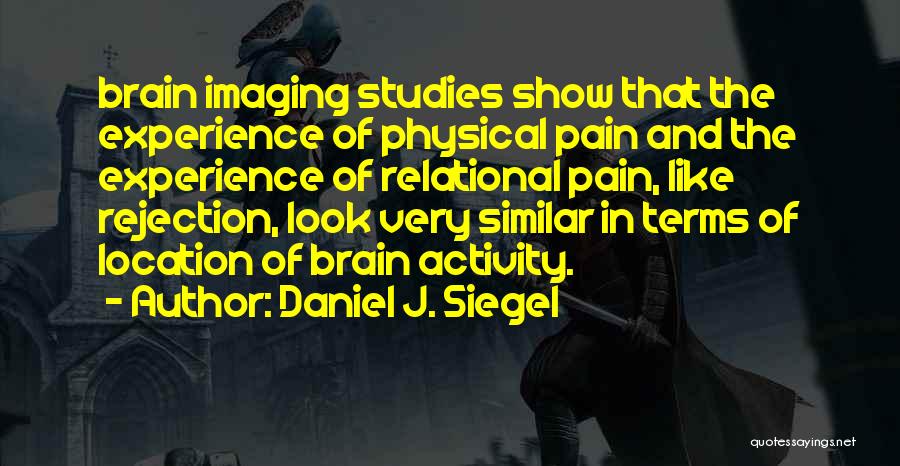
brain imaging studies show that the experience of physical pain and the experience of relational pain, like rejection, look very similar in terms of location of brain activity. — Daniel J. Siegel
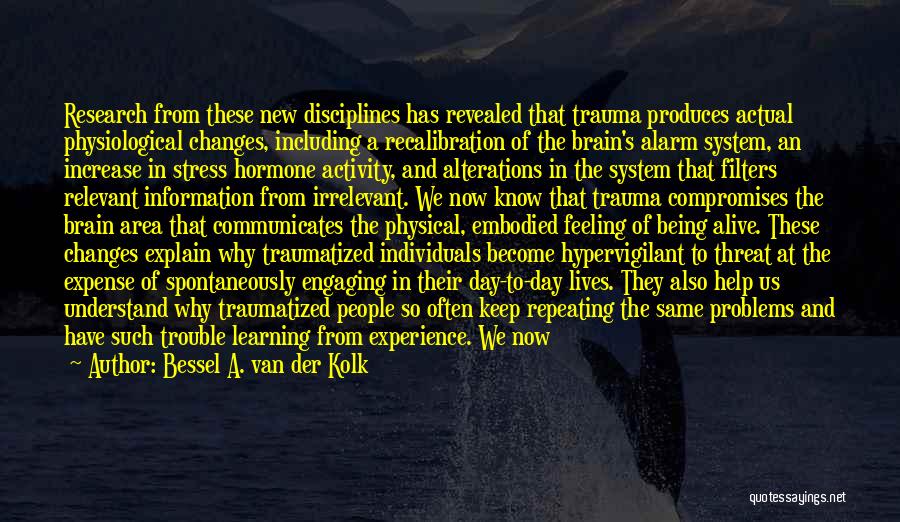
Research from these new disciplines has revealed that trauma produces actual physiological changes, including a recalibration of the brain's alarm system, an increase in stress hormone activity, and alterations in the system that filters relevant information from irrelevant. We now know that trauma compromises the brain area that communicates the physical, embodied feeling of being alive. These changes explain why traumatized individuals become hypervigilant to threat at the expense of spontaneously engaging in their day-to-day lives. They also help us understand why traumatized people so often keep repeating the same problems and have such trouble learning from experience. We now know that their behaviors are not the result of moral failings or signs of lack of willpower or bad character - they are caused by actual changes in the brain. This — Bessel A. Van Der Kolk

Humans are built to move. We evolved under conditions that required daily intense physical activity, and even among individuals with lower physical potential, that hard-earned genotype is still ours today. The modern sedentary lifestyle leads to the inactivation of the genes related to physical performance, attributes that were once critical for survival and which are still critical for the correct, healthy expression of the genotype. The genes are still there, they just aren't doing anything because the body is not stressed enough to cause a physiological adaptation requiring their activation. The sedentary person's heart, lungs, muscles, bones, nerves and brain all operate far below the level at which they evolved to function, and at which they still function best. — Mark Rippetoe
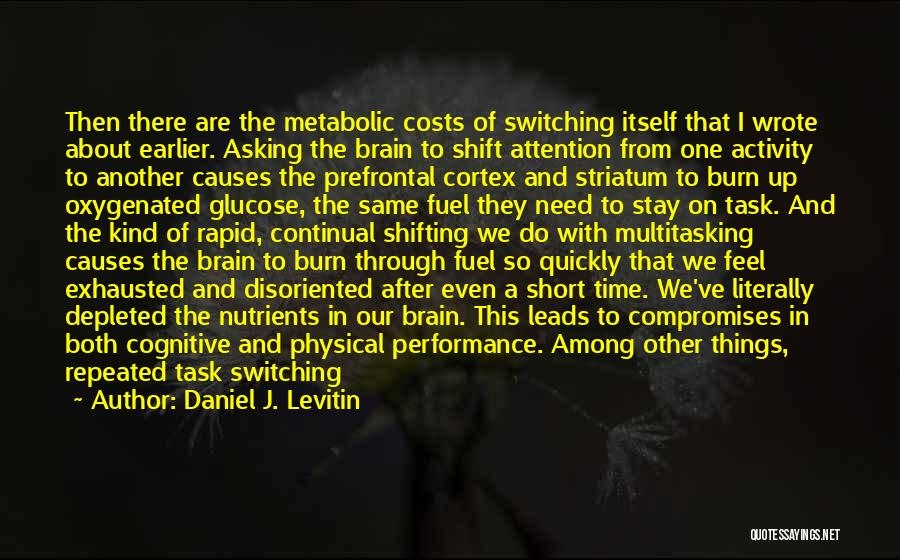
Then there are the metabolic costs of switching itself that I wrote about earlier. Asking the brain to shift attention from one activity to another causes the prefrontal cortex and striatum to burn up oxygenated glucose, the same fuel they need to stay on task. And the kind of rapid, continual shifting we do with multitasking causes the brain to burn through fuel so quickly that we feel exhausted and disoriented after even a short time. We've literally depleted the nutrients in our brain. This leads to compromises in both cognitive and physical performance. Among other things, repeated task switching leads to anxiety, which raises levels of the stress hormone cortisol in the brain, which in turn can lead to aggressive and impulsive behaviors. By contrast, staying on task is controlled by the anterior cingulate and the striatum, and once we engage the central executive mode, staying in that state uses less energy than multitasking and actually reduces the brain's need for glucose. — Daniel J. Levitin

You might one day be able to send the experience of dancing the tango, bungee jumping, or skydiving to the people on your e-mail list. Not just physical activity, but emotions and feelings as well might be sent via brain-to-brain communication. — Michio Kaku
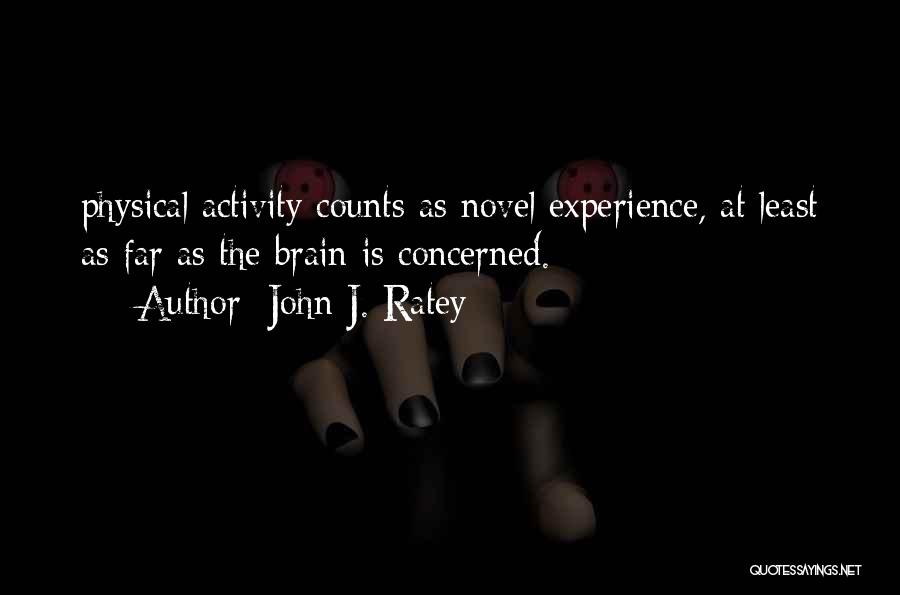
physical activity counts as novel experience, at least as far as the brain is concerned. — John J. Ratey
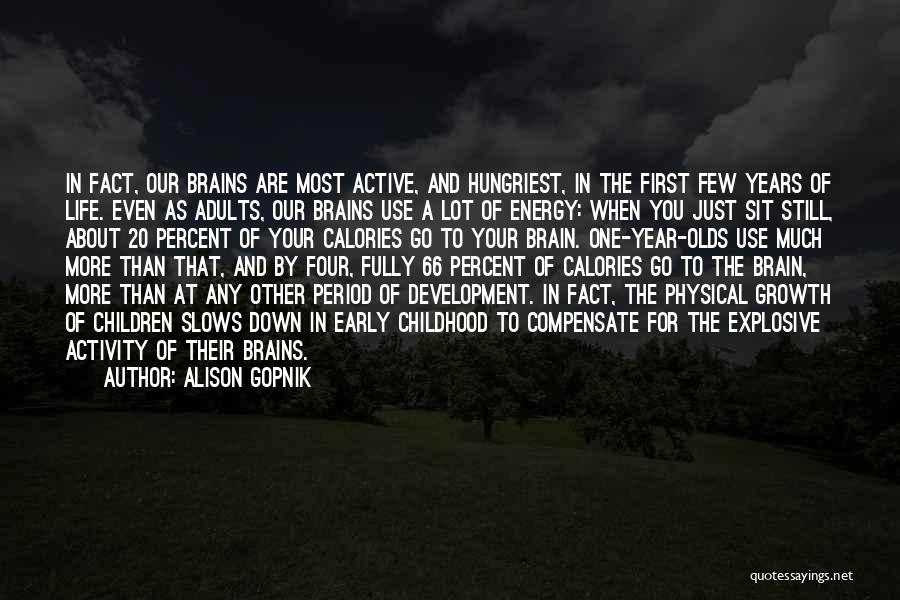
In fact, our brains are most active, and hungriest, in the first few years of life. Even as adults, our brains use a lot of energy: when you just sit still, about 20 percent of your calories go to your brain. One-year-olds use much more than that, and by four, fully 66 percent of calories go to the brain, more than at any other period of development. In fact, the physical growth of children slows down in early childhood to compensate for the explosive activity of their brains. — Alison Gopnik
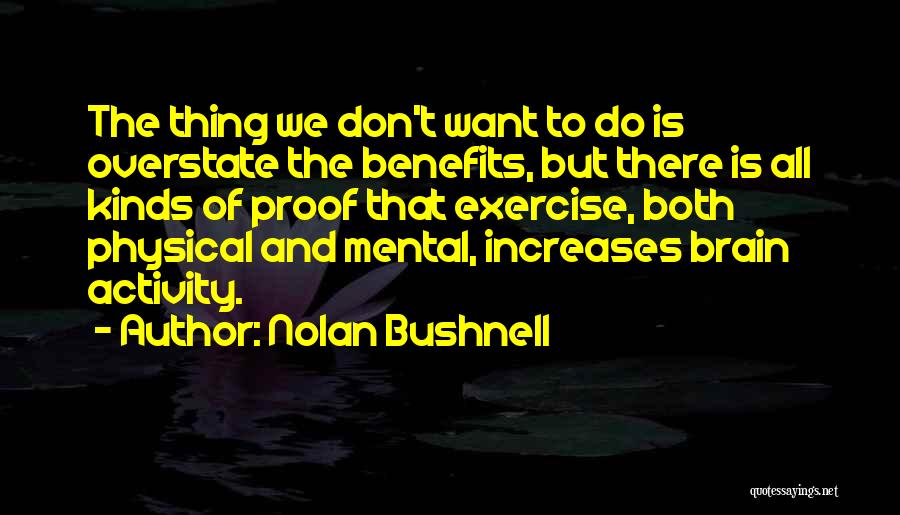
The thing we don't want to do is overstate the benefits, but there is all kinds of proof that exercise, both physical and mental, increases brain activity. — Nolan Bushnell
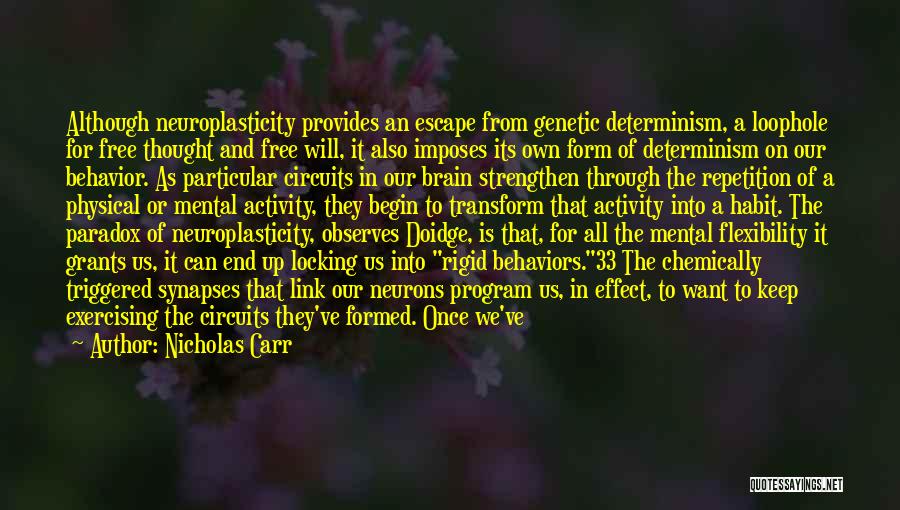
Although neuroplasticity provides an escape from genetic determinism, a loophole for free thought and free will, it also imposes its own form of determinism on our behavior. As particular circuits in our brain strengthen through the repetition of a physical or mental activity, they begin to transform that activity into a habit. The paradox of neuroplasticity, observes Doidge, is that, for all the mental flexibility it grants us, it can end up locking us into "rigid behaviors."33 The chemically triggered synapses that link our neurons program us, in effect, to want to keep exercising the circuits they've formed. Once we've wired new circuitry in our brain, Doidge writes, "we long to keep it activated. — Nicholas Carr





